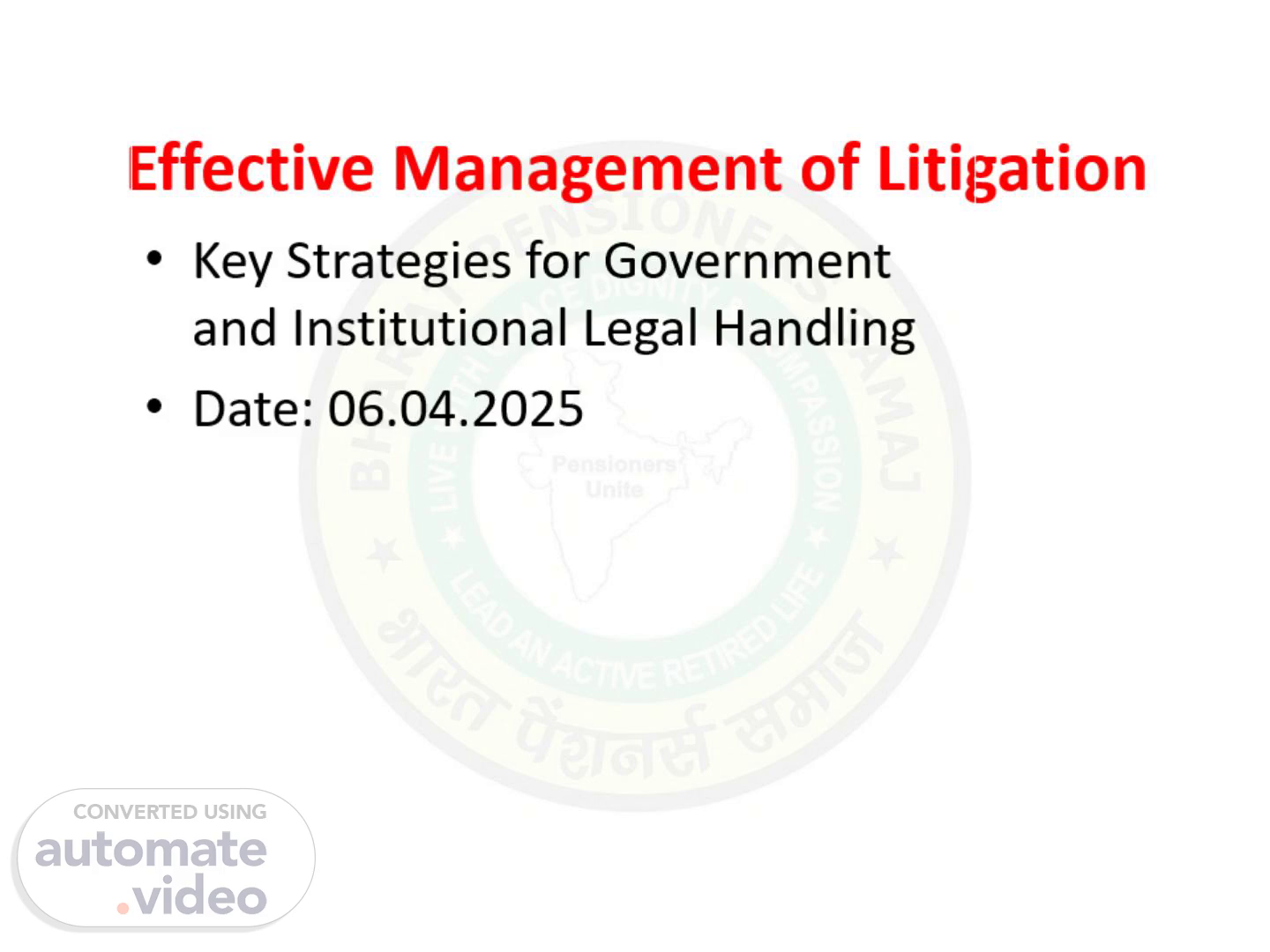Scene 1 (0s)
[Audio] Effective management of litigation Key Strategies for Government and Institutional Legal Handling Date: 06.04.2025.
Scene 2 (12s)
[Audio] Importance of Litigation Management Critical for upholding government credibility - Avoid policy disruptions and financial losses - Proactive legal handling prevents adverse judgments.
Scene 3 (26s)
[Audio] Preventive measures Reduce avoidable litigation via clear, citizen-friendly policies - Ensure timely grievance redressal - Conduct regular legal audits - Adhere strictly to court directives.
Scene 4 (38s)
[Audio] Role of Nodal Officers Appoint dedicated litigation nodal officers - Track case progress and coordinate responses - Maintain litigation databases - Liaise with legal counsel and departments.
Scene 5 (52s)
[Audio] Monitoring mechanisms Set up Litigation Monitoring Cells - Use digital tools like LIMBS - Periodic reviews and performance tracking.
Scene 6 (1m 4s)
[Audio] Timely legal action Obtain legal opinions early - Appoint counsel without delay - Submit replies before deadlines - Avoid ex-parte orders by proper representation.
Scene 7 (1m 15s)
[Audio] Stakeholder coordination Ensure communication among departments, legal advisors, and law officers - Conduct joint review meetings - Establish SOPs for litigation management.
Scene 8 (1m 26s)
[Audio] Review and withdrawal of cases Regularly assess pending cases - Withdraw infructuous or minor cases - Focus on cases with policy or financial implications.
Scene 9 (1m 38s)
[Audio] Capacity building Organize training for legal and administrative staff - Strengthen legal literacy - Update on recent laws and court practices.
Scene 10 (1m 48s)
[Audio] Accountability measures Fix responsibility for delay or negligence - Penalize lapses that result in adverse outcomes - Include litigation performance in officer appraisals.
Scene 11 (2m 1s)
[Audio] Conclusion - Effective litigation management is essential for policy success - Coordination, accountability, and training are key - A proactive approach ensures justice and efficiency.
